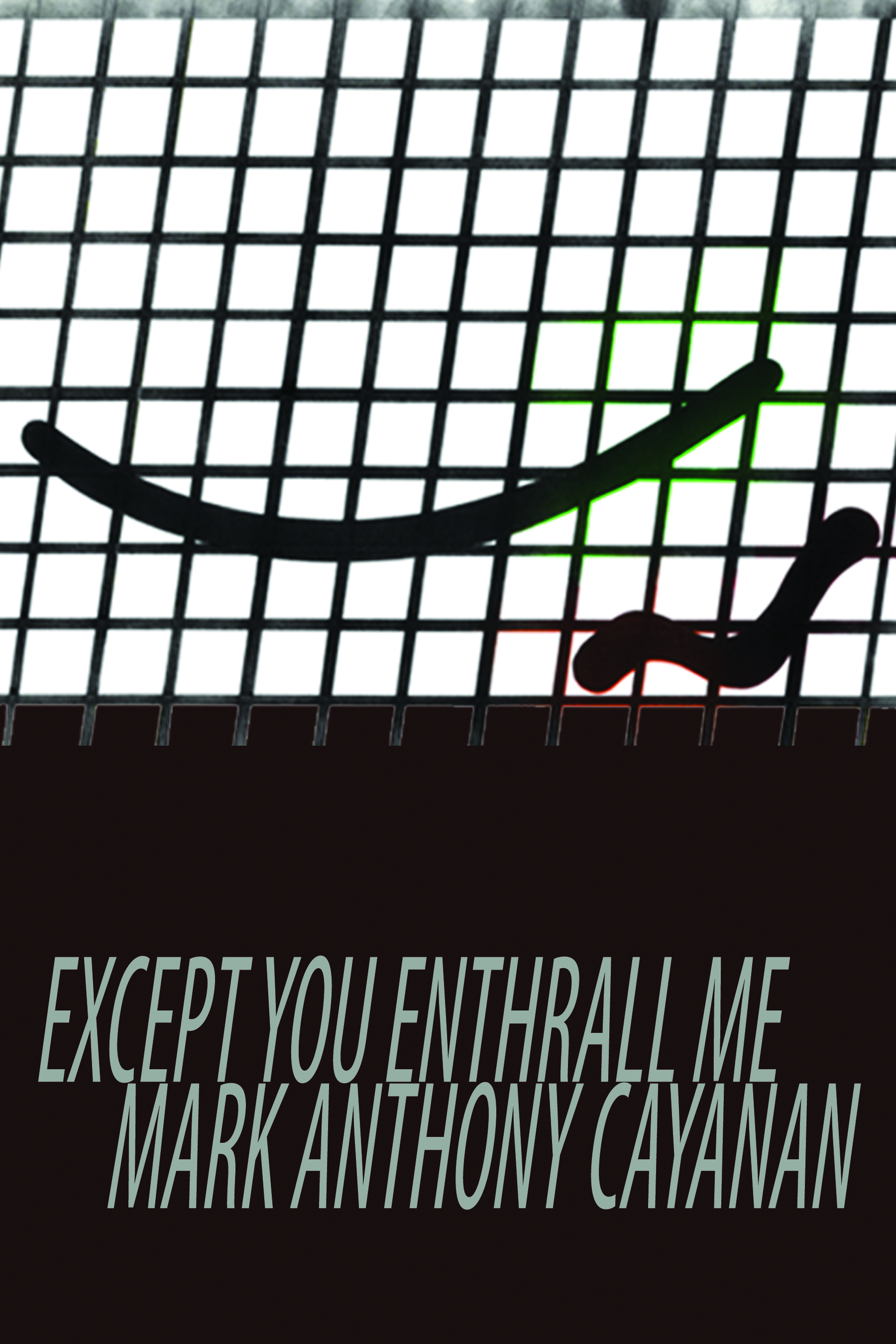
Except You Enthrall Me
In Mark Anthony Cayanan’s new collection, Except You Enthrall Me, the speaker wants to “know enough to turn away before desire,” but as these gorgeous poems demonstrate time and again, ultimately this is an exercise in defeat. Here is a poet who slips effortlessly between the fantasy and the fact, the beloved and the shadow, a world in which, in the moment after love, one can “taste ashes in the air.” Visionary, lyrical, the heart left battered and shining, Except You Enthrall Me ravishes.
—Quan Barry
As when a dick penetrates thin air this book is a partaking of delight in nothing: because the text is predicated—as literature, as mute letter—on endless proliferation & circulation, the you that enthralls is missing, fugitive. “What a rich inner life you have,” a persona recalls being told. “He means/I have no life,” enjambs Cayanan into a response by the persona, this no-life-gaining traction thru the object that is the poem, capitalizing on the emptiness of enthrallment. “You” is an index to the you that is one of the los desaparecidos, zero multiplied by readership, disappeared thru & by reception. W/c is to say, this book needs to be read for this absence to take place: only in the presence of a you does the you become absent. Disappear, & these poems appear; go, & this book comes.
—Angelo V. Suarez
Lumulusong sa kasukalan ang mga tula ni Mark Anthony Cayanan sa kanyang aklat na Except You Enthrall Me, sa kagustuhan nitong mapasaling ang hubog ng tagpuan ng mukha at ng maskara at ganap na masiyasat ang mga anyo at paraan ng pagharap: sa mangingibig, sa kapwa, sa kolektibo, at sa sarili. Walang simpleng pahayag sa koleksiyong ito; maging ang pinakadirektang taludtod ay nagpapasalat sa tagpuan ng salita at katahimikan. Malikot at komplikado ang isipang masusubaybayan sa daloy ng mga tula dahil kailangang sumapat ang wika sa salimuot ng kalagayang-pantao na itinatanghal: ang selan ng sarili sa likod ng maskara, ang mga agam-agam, ang mga puwang sa wika, ang mga aninong nililikha natin sa pag-iral ng isa’t isa. Higit kong ramdam ang pagiging buhay sa pag-ahon mula sa kasukalan ng aklat na ito.
—Allan Popa
About the Author
Mark Anthony Cayanan teaches writing and literature at the Ateneo de Manila University, where he edits the literary section of the academic journal Kritika Kultura. He is a graduate of the MFA program in Creative Writing at the University of Wisconsin in Madison and the recipient of a Civitella Ranieri Foundation Fellowship. He is the author of Narcissus (Ateneo de Manila University Press, 2011) and Shall we be kind and suffer each other (High Chair, 2013).
